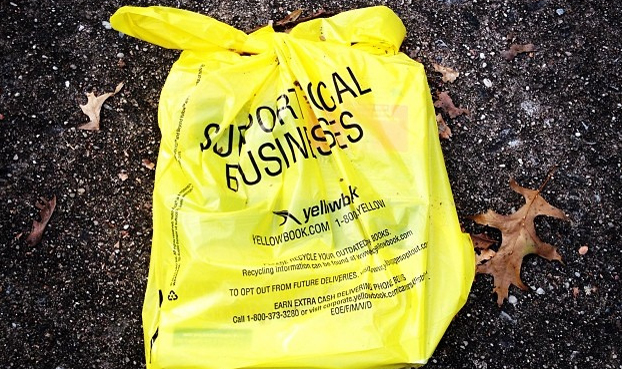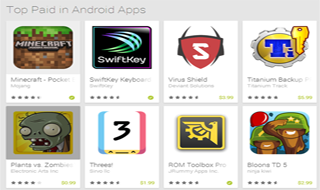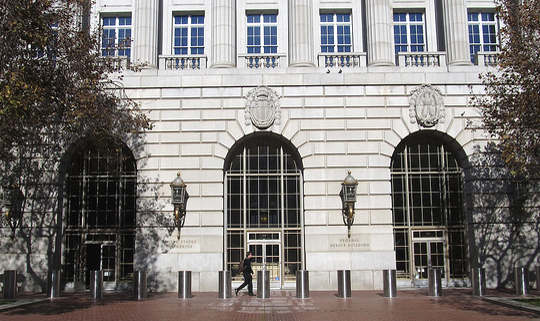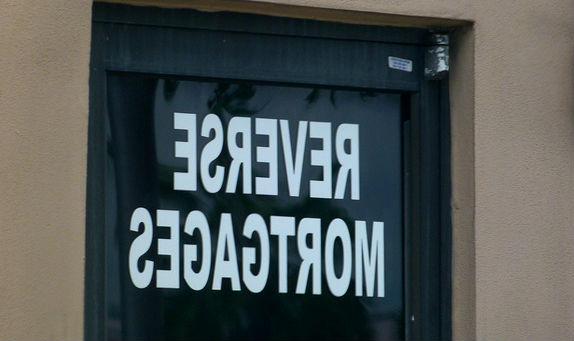Privacy price gouging, courtesy of phone companies
by David Lazarus, Los Angeles Times

By now, you’re probably thinking you have no privacy left. To cite just a couple of prominent recent examples, we had Target and other retailers admitting in January that hackers may have accessed the credit and debit card numbers of more than 110 million people. Last week, … Read More ›
Top Android app a scam, pulled from Google Play
by Stephanie Mlot, PC Mag

According to Android Police, Virus Shield is a fake security app: Instead of scanning apps, settings, files, and media, like the service advertises, its shield icon simply changes from an “X” image to a check mark after a single tap. Read More ›
Data compilers’ secret scores have consumers pegged — fairly or not
by E. Scott Reckard, Los Angeles Times

There are scores to predict whether individuals would take their medications; whether consumers are likely to pay a debt if contacted by phone or mail; the degree of a person’s influence over others on the Internet; and whether a customer is pregnant. Consumers cannot review these scores or correct errors in the data, which are used by employers, utilities, banks and others. Read More ›
Consumer Federation saves California homeowners $34 million

Using California’s longstanding consumer protection laws, known as Proposition 103, CFC worked with Farmers and the California Department of Insurance to cut the increase nearly by half, resulting in an overall savings of about $34 million. Read More ›
Corinthian Colleges Sued by Massachusetts Over Job Claims
by Christie Smythe, Bloomberg
For-profit Corinthian Colleges Inc. was sued by Massachusetts over claims it misrepresented job placement rates and pushed students into high-interest loans. The school since 2009 “aggressively recruited and misled students by falsely promising high quality, successful training programs” while leaving them with “exorbitant student loan debt,” state Attorney General Martha Coakley said today in a statement. Read More ›
Your Auto Insurer May be Playing Price Games with Your Premium
by Jean Chatzky, CNN Money
The Consumer Federation of America ruffled the feathers of auto insurers this week when it made a fuss about something called “price optimization.” It’s a relatively new practice put in place by many large insurers to price policies on factors other than risk — specifically, how much consumers are willing to pay before they walk away. Read More ›
Proposed bill aims to protect consumers’ private information
by Jana Katsuyama, KTVU

AB 1710 would ban the long-term storage of a customer’s data, including personal identification number, social security number, and the drivers license number. It also would require that retailers reimburse victims for the cost of data breaches, instead of banks. Read More ›
Carrier IQ Loses Bid To Send Privacy Case To Arbitration
by Wendy Davis, MediaPost News

In a blow to software developer Carrier IQ, a federal judge has rejected the company’s bid to send a class-action privacy lawsuit to arbitration. The decision, issued late last week, means that consumers who are suing the company for allegedly violating privacy laws will be able to proceed with their claims in federal court. Read More ›
How To Buy A Politician: What Wednesday’s Supreme Court Ruling Means For Consumers
by Kate Cox, Consumerist

It is both cynical and accurate for the Court to have acknowledged that money is the single most important part of our political system. The very wealthiest, most determined donors have long since become experts at finding ways to see money funneled to their candidates of choice. As the 2014 campaign season grows more heated heading into November’s midterm elections, though, we will probably see the ripple effects of Wednesday’s ruling start to spread out. Read More ›
State senator wants consumers to know what fire retardants they are taking home
by Samantha Weigel, San Mateo Daily Journal

Scrutiny over the widespread use of flame retardant chemicals led California to update its flammability standards last year, and now Senator Mark Leno wants to provide consumers with the ability to make well-informed decisions over what they bring into their homes. Read More ›
Consumers Save $2.5 Billion A Year If A ‘Kill Switch’ Stops Phone Thefts, Study Finds
by Gerry Smith, Huffington Post

If phone thefts were no longer a concern, more than half of smartphone owners say they would buy less expensive phone insurance coverage from third parties like Apple or SquareTrade that doesn’t cover theft or loss, according to a small survey of 1,200 smartphone owners Duckworth conducted along with his analysis. Read More ›
Pitfalls of Reverse Mortgages May Pass to Borrower’s Heirs
by Jessica Silver-Greenberg, New York Times

Some lenders are moving to foreclose just weeks after the borrower dies, many families say. The complaints are echoed by borrowers across the country, according to a review of federal and state court lawsuits against reverse mortgage lenders. Read More ›
Most payday loan borrowers get stuck in ‘revolving door of debt’
by Jim Puzzanghera, Los Angeles Times
The Consumer Financial Protection Bureau finds that 4 in 5 people who take out a short-term payday loan either roll it over or quickly take out another loan, incurring heavy interest costs. Read More ›